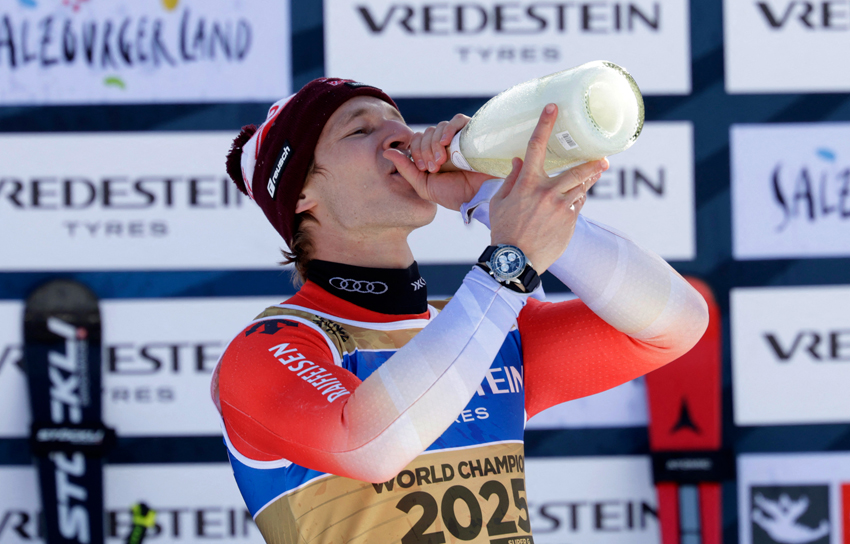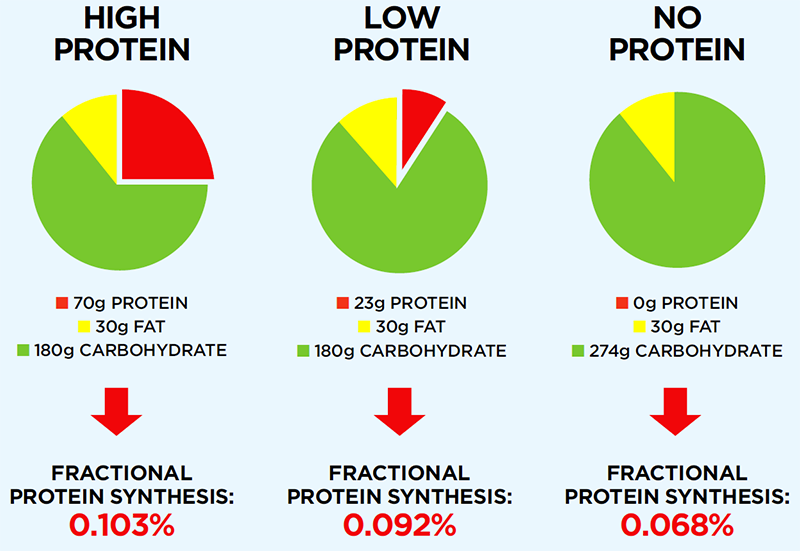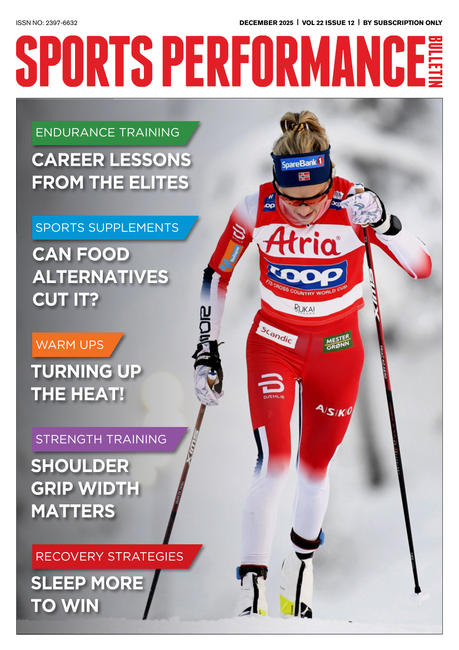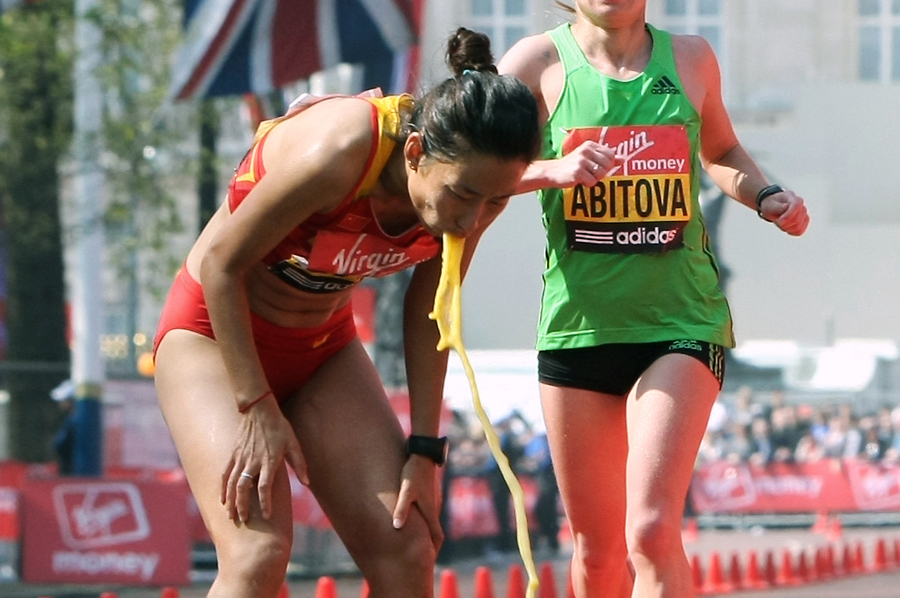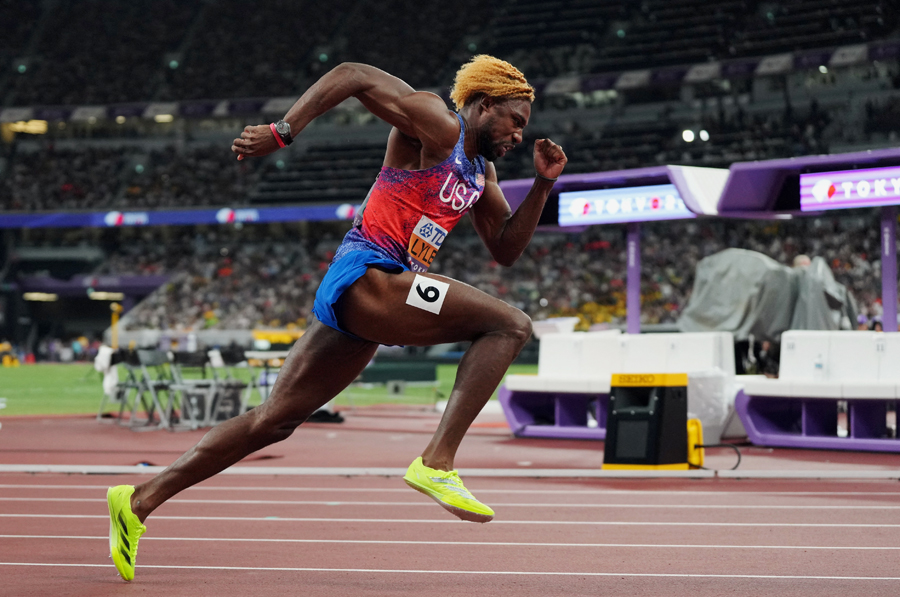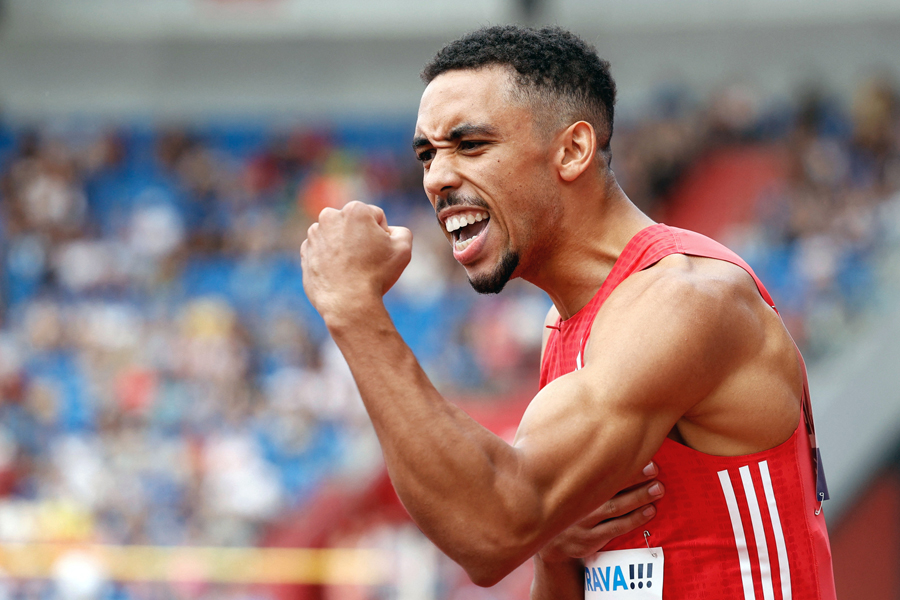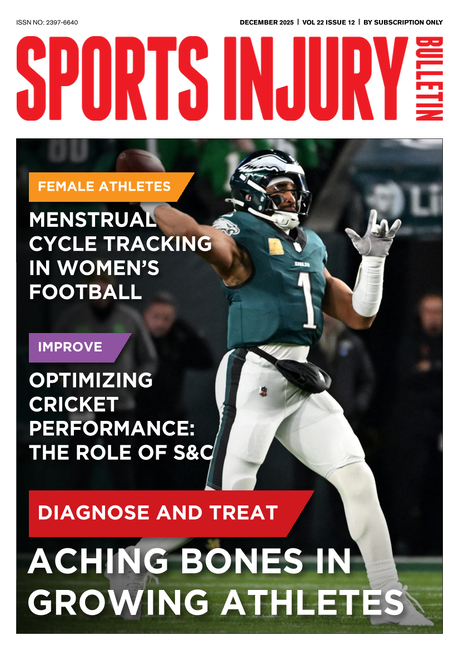You are viewing 1 of your 1 free articles. For unlimited access take a risk-free trial
Recovery nutrition: is the window of opportunity real?
SPB looks at new research on carbohydrate and protein intake for recovery following exercise. Is there really a ‘window of opportunity’ immediately after exercise?
When it comes to post-exercise recovery, there are two key ingredients. The first of course is getting physical rest, which includes plenty of sleep. But without doubt, the next single most important thing you can do to boost performance is to improve your recovery nutrition! In broad-brush terms, there are four major nutritional requirements for rapid recovery after long and/or strenuous exercise (see box 1). Of these nutrients, carbohydrate is the most researched, and over recent years, much has been written about the benefits of consuming carbohydrate following exercise (see these articles).
Box 1: Nutritional requirements for rapid recovery
- Carbohydrate – needed to synthesise and replenish muscle glycogen (the body’s premium grade fuel for strenuous exercise), and also to top up liver glycogen stores, which serve as a reserve to maintain correct blood sugar levels. Post-exercise carbohydrate also stimulates the release of a hormone called insulin, which helps to drive glucose (from carbohydrate) and amino acids (from protein – see below) into hungry muscle cells, accelerating recovery;
- Protein – needed to supply the amino acid building blocks required to repair and regenerate muscle fibres damaged during exercise, and to promote muscle hypertrophy (growth) and adaptation;
- Water – to replace fluid lost as sweat and to aid the process of glycogen storage in muscle (each gram of glycogen synthesised in muscle requires around three grams of water to ‘fix’ it in place;
- Electrolytes – to replenish minerals lost in sweat (eg sodium, chloride, calcium, magnesium).
However, protein is also known to be important for post-exercise recovery. While protein metabolism is more difficult to study, increasingly advanced scientific techniques over the past 15 years or so have helped to shine a light into post-exercise protein intake and its role in recovery. Importantly, sports scientists have begun to fully appreciate why protein is so important for endurance athletes such as runners, cyclists and triathletes. While it’s true that these sports don’t require high levels of muscle mass or brute strength, consuming adequate protein to regenerate muscle mass broken down during exercise is absolutely vital for all the reasons listed in box 2.
Box 2: The importance of muscle mass for endurance sports
- All other things being equal, a muscle with a larger cross-sectional area is able to generate more force and power (ie is stronger) – force needed to propel you forward whether swimming, cycling, rowing, running etc;
The higher the peak force and power your muscles can produce, the easier it is for them to maintain a given workload (eg force applied to the cranks during cycling, or powering through the water when swimming) because they can do this by working at a lower % of their maximum force output;
More muscular strength and power allows for better sprint performance (eg at the end of a race or to break away from your opponents);
Stronger muscles are better able to withstand the stress and strains of repeated impact and loading – ie reduce your risk of injury.
The carbohydrate-protein recovery combination
While carbohydrate is absolutely essential for replenishing muscle glycogen – a key component of recovery - research has established that carbohydrate and protein work synergistically in the body, which means that better recovery is achieved when the two are combined in post-exercise feeding rather than either taken alone. In a study on cyclists, researchers looked at muscle protein synthesis and different recovery formulations after high-intensity cycling(1).
Twelve cyclists completed 100 minutes of high-intensity cycling, then over the next four hours at hourly intervals, ingested one of three recovery drinks:
- 70g protein/180g carbohydrate/30g fat (high protein)
- 23g protein/180g carbohydrate/30g fat (low protein)
- 0g protein/274g carbohydrate/30g fat (zero protein)
All the drinks were effective at helping restore muscle glycogen (thanks to the carbohydrate content) but it was only the protein-containing drinks that were effective at promoting muscle tissue synthesis and recovery. Interestingly, the low-protein recovery drink containing only a third of the protein of the high-protein drink stimulated muscle tissue synthesis almost as well (see figure 1). This is likely because the protein used in these drinks (whey) was rich in the amino acid leucine, which plays a special role in muscle recovery – probably by acting as a ‘signalling molecule’, helping to switch on genes involved in muscle protein synthesis.
Figure 1: Muscle tissue synthesis: zero vs. low vs. high protein recovery drinks
Muscle tissue synthesis was much lower when the cyclists drank the carbohydrate-only drink for recovery. The low-protein drink meanwhile produced almost as much muscle synthesis as the high-protein drink containing triple the protein!
NB: Myofibrillar FSR = amount of muscle tissue synthesis measured in % per hour.
A 2020 systematic review and meta-analysis study (a rigorous type of study that pools all the data from previous studies on a topic and combines them to arrive at very robust conclusions) further underlines the importance of a carbohydrate-protein blend for post-exercise recovery(2). A total of 30 randomized controlled trials and 326 participants in total investigating the effect of ingesting carbohydrate and protein - either singly or combined - on athletic performance were included in this review. This study found that compared to consuming carbohydrate only, consuming a post-exercise blend of carbohydrate and protein improved subsequent time to exhaustion and time-trial performance in a subsequent bout of exercise, especially when that subsequent exercise was performed more than eight hours after the initial bout. This effect is almost certainly due to superior muscle fiber repair and recovery thanks to the presence of protein.
Timing your carbohydrate-protein intake
When it comes to when to take nutritional supplements, it has long been argued and widely accepted that there is a 30-minute period immediately following exercise, which presents a ‘golden window of recovery’(3). The theory is that this window offers a period of time in which the muscles are especially receptive to the uptake and incorporation of key recovery nutrients such as carbohydrate and protein, reflected by the fact that during this time, muscle protein synthesis is at its peak suggesting protein and carbohydrate supplements can hasten recovery(4,5).
However, according to recent research, supplementation that is delayed may be able to have a comparable impact, particularly when it comes to athletes who are habitually consuming low-carbohydrate diets(6). Furthermore, other studies have suggested that the best time to consume post-workout supplements can be quite variable, and will depend on the kind of workout performed, its intensity, and the individual characteristics of the workout (not to mention the individual responses of the athlete)(6,7).
In short, the evidence for whether post-exercise carbohydrate and protein should be taken immediately following exercise, or whether a more relaxed and delayed approach is equally effective for recovery, is rather mixed. According to some research, supplementing carbohydrate and protein right after working out optimally speeds up muscle recovery, restores glycogen, and lowers inflammation(8,9). However, some other studies have concluded that the recovery effect is unaffected by delayed supplementation(10,11), and may even be preferable, because it lessens discomfort in the stomach. The most likely explanation for these differing findings is that different studies on this topic have used different timings of nutritional supplementation, different study designs, and the characteristics of the athletes taking part has also been highly variable, all of which has muddied the waters.
New research
To try and get a definitive answer to the question ‘what is the optimum timing of post-exercise nutrient ingestion for the best and fastest possible recovery’, a team of researchers from Southwest University in China has carried out a systematic review and meta-analysis of all the previous research on this topic, which has just been published in the journal ‘Frontiers in Nutrition’(12). By searching all the academic databases and sifting out all the relevant randomized controlled trials, clinical trials, and observational studies that satisfied strict inclusion criteria, the researchers have been able to generate some very robust conclusions – exactly what athletes need when choosing a training or nutritional strategy!
What they did
A search of all the previous scientific literature on post-exercise carbohydrate and protein intake was carried out to identify all the studies that met the following inclusion criteria:
· Studies that were randomized controlled trials and clinical trials (ie not theoretical but actually involved athletes and a nutritional intervention).
· Studies that addressed nutritional supplementation at different points in time after exercise.
· Studies that evaluated post-exercise recovery effects, such as muscle function and recovery, glycogen replenishment and recovery, and post-exercise fatigue.
In total, 175 studies were singled out for screening but when the strict inclusion criteria were applied, these were whittled down to just eight studies. Acute intense exercise bouts, endurance training, resistance training, and endurance sports were all included in final analysis, with a total of 270 participants across the eight studies, 158 of whom were in experimental groups and 112 in control groups. A sophisticated statistical analysis was then carried out using a technique known as ‘random effects modelling’, and conclusions were drawn.
What they found
The first finding was that overall, supplementing a blend of protein and carbohydrate at any time after training produced a positive effect on recovery, as measured by post-exercise fatigue. This was the case despite large variations in the nutritional interventions (time point of ingestion, doses, kind of supplementation), and the sample characteristics (athlete gender, age, sport and activity level etc).
When carrying out a meta-analysis, blending data to generate evidence is much easier when studies are homogeneous and the conclusions drawn are far more robust – basically because researchers can compare like with like. Therefore, the researchers also divided the eight studies into two subgroups: in one subgroup of four studies, there was a very high ‘homogeneity’ (ie the study designs were all similarly structured), whereas in the other four studies, the study characteristics were all very different to each other.
Related Files
The researchers then carried out a further analysis of the homogeneous subgroup of studies, and when they did, the data clearly showed that commencing carbohydrate and protein supplementation immediately after training resulted in significantly better recovery outcomes. In particular, it was apparent that compared to delayed supplementation, supplementing with protein and carbohydrate immediately after exercise, particularly when that exercise is intense, results in less post-exercise fatigue, better post-exercise muscle protein synthesis and repair/recovery, and higher levels of muscle glycogen replenishment (refuelling).
Take home message for athletes
This new research contains two key findings: firstly, consuming some supplemental carbohydrate and protein following a training session is definitely recommended as it results in superior recovery compared to consuming nothing and just waiting until your next scheduled meal. Perhaps more importantly, this research suggests that when all other things are equal (the type and quantity of carbohydrate and protein consumed, the duration and intensity of the exercise performed etc), the golden window of opportunity does exist and consuming supplemental carbohydrate and protein immediately after exercise does result in better recovery. In short, post-exercise nutrient intake timing really does matter!
In terms of practicality, what does this mean for athletes? The first thing to say is that when fast recovery matters, it’s worth having a carbohydrate-protein recovery drink either at the ready to drink immediately post exercise, or trying to ensure you can get hold of one soon after you finish training. This is particularly true when you have been performing intense exercise. So for example, if you’re training at the pool or gym and it’s a 30-minute journey back home, it’s better to take a recovery drink with you if possible to consume immediately after training. However, if you go out for a training run/cycle, or your gym is just five minutes away, you can just come home and knock up a drink since any delay will be minimal.
As for the composition of your recovery formula, that will depend on your workout. As a rule of thumb, the longer the workout and more endurance-focused it is, the higher the proportion of carbohydrate should be included in your formula. So for example, after a 90-minute run or bike ride, a 3:1 carbohydrate to protein ratio is often recommended. For very long sessions, recovery drink ingestion can be repeated after 60-90 minutes.
When exercise is more intense and shorter in duration, a 2:1 or 1:1 carbohydrate to protein ratio is preferable. Again, this can be repeated if it’s not possible to consume a meal within an hour or two after training. Regardless of ratio, you should aim to ingest 20-25 grams of protein immediately after training, which means combining it with 20-25 grams of carbs after a short intense workout or up to 75 grams of carbs after a longer endurance workout.
Without doubt, whey is the best protein to ingest in a recovery drink as it is broken down rapidly after ingestion – perfect for hungry muscles and rapid recovery. Carbohydrate type may vary; fast releasing carbs such as maltodextrin provide a fast release of glucose into the bloodstream, which can be ideal where rapid muscle glycogen synthesis is required. However, those who are sensitive to sugar and blood sugar swings may get on better with a slower-releasing carbohydrate such as ultra-fine ground oatmeal (which is healthier as well)!
Finally, if you can’t consume a recovery product right after training for whatever reason, don’t worry. Waiting an hour or two to consume something won’t prevent recovery; it’s just that your recovery won’t be quite as rapid or complete as it might have been if starting immediately. Don’t forget too that recovery doesn’t just end after carbohydrate and protein ingestion. Drinking plenty of post-exercise fluid intake is vital, as is consuming a well-balanced meal in the following hours containing high-quality protein (lean meat, fish, eggs etc) and natural, healthy carbohydrates such as wholegrain breads, pasta or rice, potatoes, beans and peas etc).
References
1. Med Sci Sports Exerc. 2015 Mar;47(3):547-55
2. Nutrients . 2020 May 20;12(5):1483
3. J Int Soc Sports Nutr. (2013) 10:5
4. J Sports Sci. (2004) 22:15–30
5. Am JPhysiol-Endoc M. (2001) 280:E982–93
6. Nutrients. (2021) 13:1330
7. Nutrients. (2017) 9:1169
8. Nutrients. (2012) 4:568–84
9. Nutrients. (2018) 10:333
10. J Int Soc Sports Nutr. (2008) 5:5
11. Springerplus. (2016) 5:506
12. Front Nutr. 2025 Apr 25;12:1567438. doi: 10.3389/fnut.2025.1567438
Newsletter Sign Up
Testimonials
Dr. Alexandra Fandetti-Robin, Back & Body Chiropractic
Elspeth Cowell MSCh DpodM SRCh HCPC reg
William Hunter, Nuffield Health
Newsletter Sign Up
Coaches Testimonials
Dr. Alexandra Fandetti-Robin, Back & Body Chiropractic
Elspeth Cowell MSCh DpodM SRCh HCPC reg
William Hunter, Nuffield Health
Keep up with latest sports science research and apply it to maximize performance
Today you have the chance to join a group of athletes, and sports coaches/trainers who all have something special in common...
They use the latest research to improve performance for themselves and their clients - both athletes and sports teams - with help from global specialists in the fields of sports science, sports medicine and sports psychology.
They do this by reading Sports Performance Bulletin, an easy-to-digest but serious-minded journal dedicated to high performance sports. SPB offers a wealth of information and insight into the latest research, in an easily-accessible and understood format, along with a wealth of practical recommendations.
*includes 3 coaching manuals
Get Inspired
All the latest techniques and approaches
Sports Performance Bulletin helps dedicated endurance athletes improve their performance. Sense-checking the latest sports science research, and sourcing evidence and case studies to support findings, Sports Performance Bulletin turns proven insights into easily digestible practical advice. Supporting athletes, coaches and professionals who wish to ensure their guidance and programmes are kept right up to date and based on credible science.
